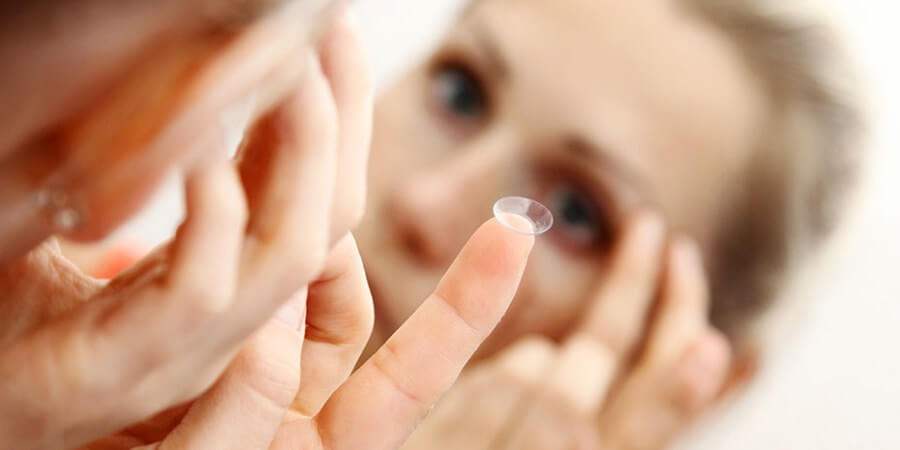Home » Blog » Tips for First Time Contact Wearers
Tips for First Time Contact Wearers
Posted by: Coastal Eye Associates in Contacts on December 12

Wearing contacts for the first time can be a little bit difficult and a little bit scary. Below are some of our tips for first time contact wearers.
Putting in your lenses
- Always wash your hands with soap before you touch your eyes or contacts.
- Make sure the lens isn’t inside out. To do this, put the lens on the tip of your finger and hold it up to the light. You want to make sure it looks like a smooth edged cup. If the edges are flared out, it’s inside out.
- Using the opposite hand, hold open your upper eyelid.
- Carefully pull down your lower eyelid with the free fingers of the hand with the contact.
- Slowly and carefully move your contact towards your eye. It often helps to look upwards as you place the lens on your eye.
- Slowly release your eyelid and close your eye for a moment to allow the lens to settle.
- Repeat for the other eye.
How to remove contacts
- Before you touch your eyes or lenses, wash your hands with soap.
- Look up at the ceiling and carefully pull down your lower eyelid with your middle finger.
- Slowly bring your index finger close to your eye until you touch the lower edge of the lens.
- Slide the lens down to the lower white part of your eye.
- Gently squeeze the lens between your thumb and index finger and remove it.
- Repeat for other lens.
- If you have reusable lenses- clean and disinfect. If you have disposable lenses discard them daily.
- Never rinse your lenses or their case with tap water.
Eye Makeup and Contact Lenses
Be careful when applying makeup while wearing your lenses. Makeup can stick to your lenses.
- Put your lenses in before applying makeup.
- Use only non-allergenic makeup.
- Cream eye shadow is less likely to get in your eye than powder. As a good rule of thumb it’s always better to choose water based creams than oil based.
- If you choose to use powder instead, keep your eyes closed during the application.
- Only apply eyeliner on the portion of your lashes that is well away from your eye and never between your lashes and your eye.
- When removing eye makeup always wash and dry your hands first. Remove your contacts and then use your makeup remover.
- It’s important to replace your makeup frequently. Over time bacteria can get into your make up products and then into your eyes leading to an infection. Also never share your eye makeup with others.
Dry Eyes with Contacts
If your current lenses fit well and you still experience discomfort, you may need a different type of lens or a different wearing schedule. Many types of contact lenses are available today, and you may find newer options are more comfortable than your old lenses. Here are a few solutions that may make your contact lens wear more comfortable:
- Daily disposables: If lenses with built-up deposits are making you uncomfortable, then starting each day with a new lens may help. This is true especially if you suffer from allergies and are bothered by the airborne allergens that can stick to your lenses, or if your tear chemistry is such that difficult-to-remove lipids and proteins are accumulating on your lenses. Several brands of daily disposable lenses are available from the major contact lens manufacturers.
- Lenses with a different water content: Hydrogel (soft) contact lenses hold different amounts of water when they are fully hydrated, based on characteristics of the lens material. Some people are more comfortable with lenses in materials that have a low water content; others are more comfortable with lenses that have a high water content. If your eyes feel dry, ask your eye doctor if changing to lenses with a different water content might help.
- Silicone hydrogels: These advanced soft lenses allow more oxygen to reach the eyes and may stay moist longer than conventional soft (hydrogel) contact lenses.
- FDA-indicated for dryness: Some soft contact lenses have been specially developed to relieve dryness.
For more questions contact us or schedule an appointment with one of our doctors here at Coastal Eye Associates.
